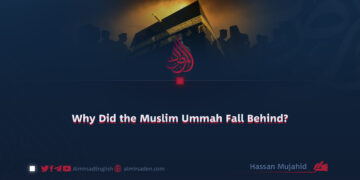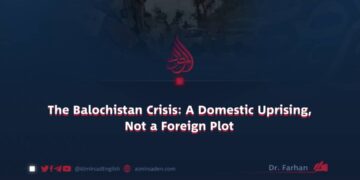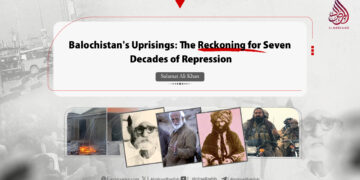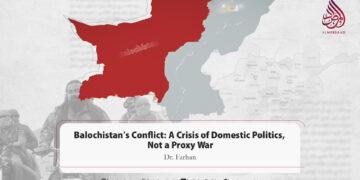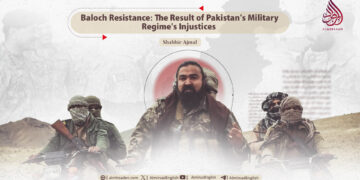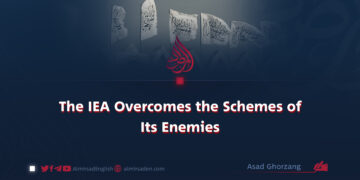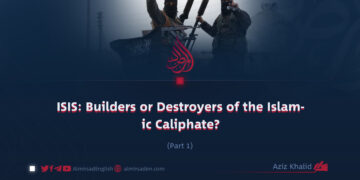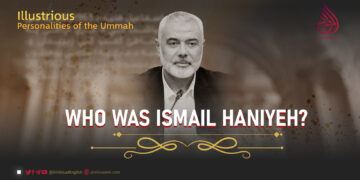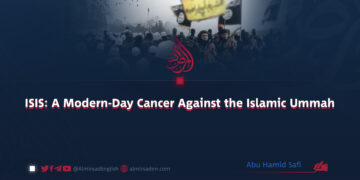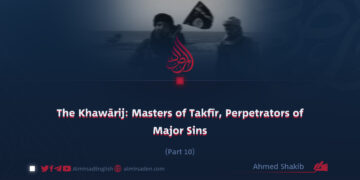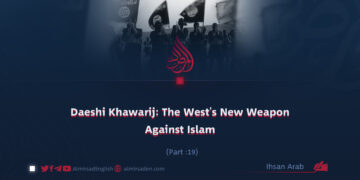Author: Abu Javed
When the Arabs confronted the empires of Rome and Persia, some superficial observers considered this endeavor to be irrational. To them, the notion of Islam’s triumph appeared as a mere fantasy. Their perspective was limited, as they were engulfed in darkness. Nevertheless, Islam’s purpose was to illuminate every corner of the world, converting darkness into light, and replacing tyranny and oppression with justice and equality. Its aim was to promote fairness in a world divided by social hierarchies, fostering equality between the privileged and the underprivileged.
The Muslim army lacked material resources and weapons, but their unwavering reliance on Allah’s help had strengthened their faith to such an extent that 18,000 soldiers stood firm against an army of nearly 50,000 disbelievers.
These individuals, originating from the desolate deserts of Arabia, advanced towards the fertile lands of Iraq and secured victory. However, there were still skeptics who viewed this triumph as a miraculous event of luck. How could those individuals solely dependent on material means comprehend the spiritual assistance of Allah?
This caravan from Hijaz believed in victory and martyrdom, which enabled them to triumph against larger armies. Their leader, Khalid ibn al-Walid, embodied confidence, faith, and tranquility. He was unfamiliar with the concept of defeat. Despite the Romans and Persians forming a united front against the Muslim forces, Khalid, known as the “Sword of Allah,” dismantled their alliance, forcing their soldiers into a desperate retreat. On the battlefield of Firaz, countless enemy corpses lay scattered. These victories were firmly rooted in divine assistance.
The war between Khosrow’s Persia and Islam entered a critical phase. The Muslim commander, Sa’d ibn Abi Waqqas, led an army of a mere 30,000 warriors against the Persians’ overwhelming force of over 120,000, equipped with elephants and sophisticated weaponry. In contrast, the Muslims possessed antiquated swords and many were without proper armor. Yet, their fervor for jihad was unparalleled.
They harbored no fear of material adversaries, for they relied on divine assistance. Each prayed fervently for the honor of martyrdom. After three consecutive days of battle, on the fourth day, Persia’s fortune and throne collapsed. Their commander was killed, and their defeated army retreated. The battlefield of Qadisiyyah marked the demise of Persian pride, and the thousand-year-old Persian empire crumbled at the hands of these humble and simple individuals.
They embodied human dignity, their hearts pulsating with the yearnings for victory and martyrdom. In contrast, their foes fought solely for temporal success, dreading death and viewing it as a symbol of defeat. Those who adhere to a superficial materialistic worldview often fail to comprehend the essence of spirituality and divine succor. Islamic history bears testimony to numerous instances where proponents of materialism clashed with those fortified by faith and divine support, with victory consistently favoring the latter.
The stories of the past and present are the same. Today, Israel stands as a champion of materialism. Yet, the unarmed people of Gaza have displayed such courage that they have shattered all the false ideologies, beliefs, and ambitions of the materialists.
Even today, superficial thinkers label the resistance of the people of Gaza against Israel as madness. However, unaware of Allah’s divine help, they will be astonished when Israel faces a humiliating defeat. We await such a day and firmly believe in its inevitability, by Allah’s will.






